Inventory: New openings / Amsterdam
Dutch master
A former waterside inn in a quiet fishing village north of Amsterdam is now a cosy hotel and restaurant where good food, nice design and big views all entice you to linger. Monocle takes a first look.
“Don’t worry,” the kind-eyed waitress says as Monocle peers down at the shards of a glass that moments before had contained some orange juice. “In the Netherlands a broken glass is good luck,” she says, deftly manoeuvring us clear of the spill. Whether or not that’s true, the idea is reassuring. We’re at the newly opened De Mark restaurant in the revamped De Durgerdam hotel, by a bar that has seen its share of spills since it first opened in the 17th century. Today, however, it looks more polished than ever.
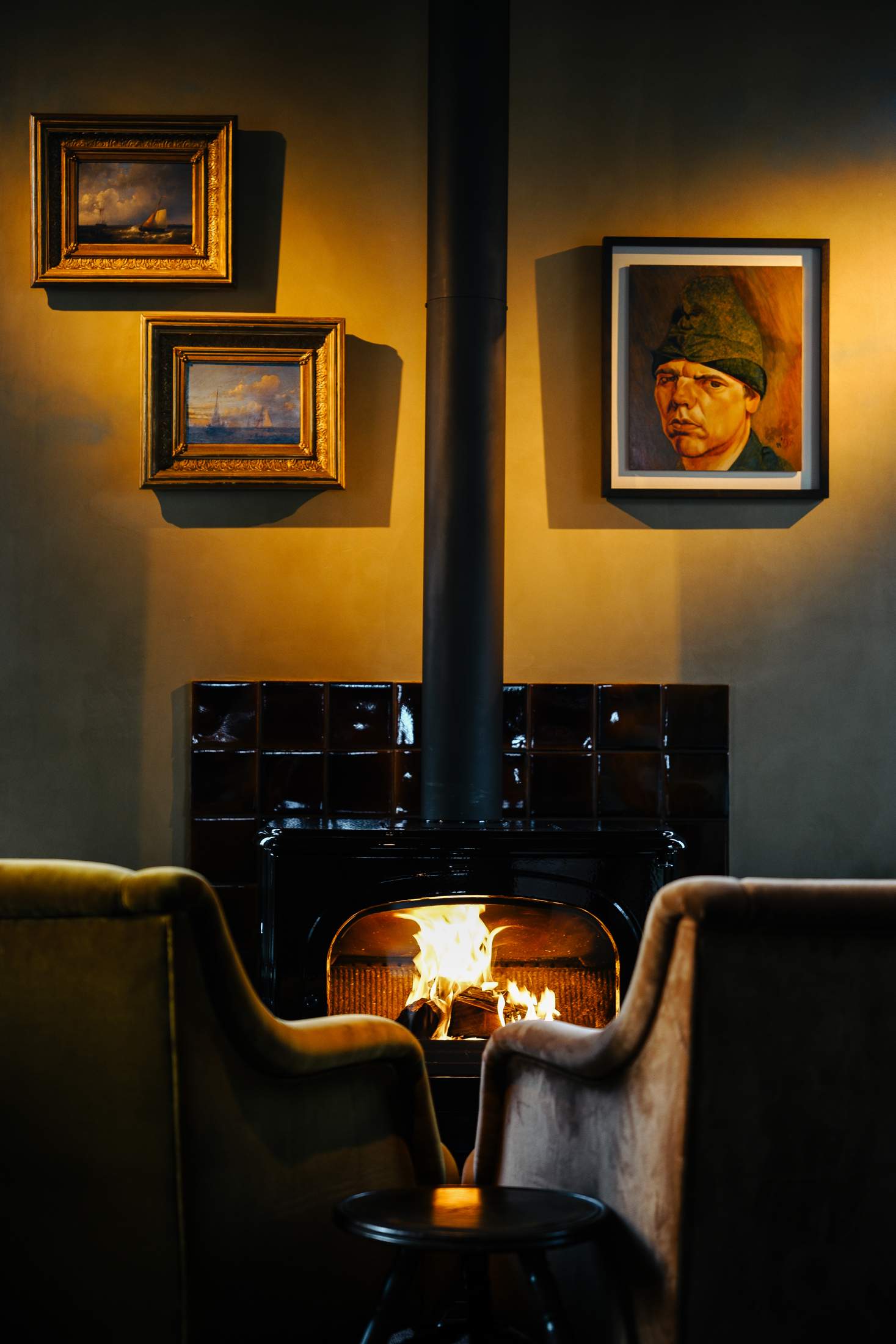
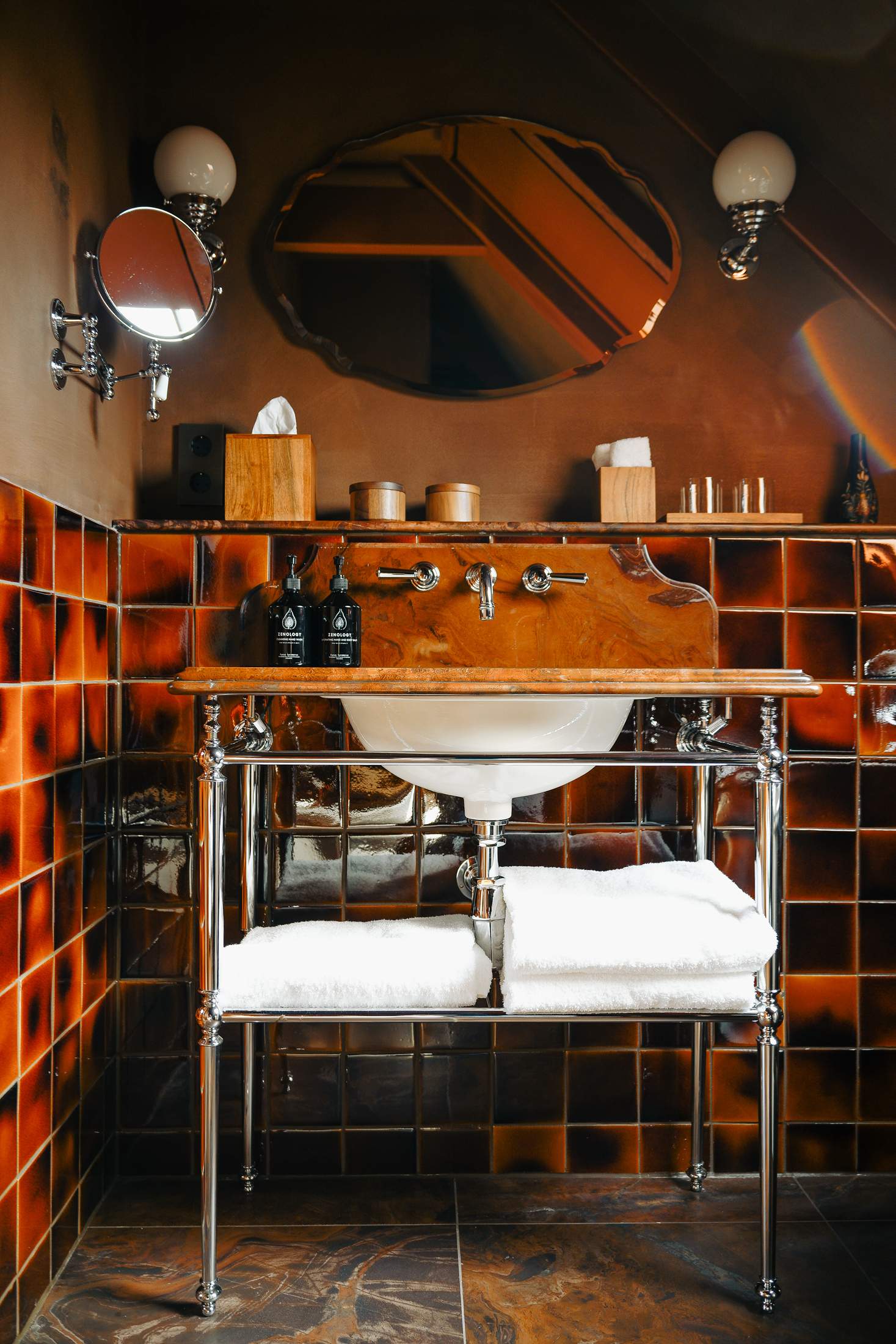
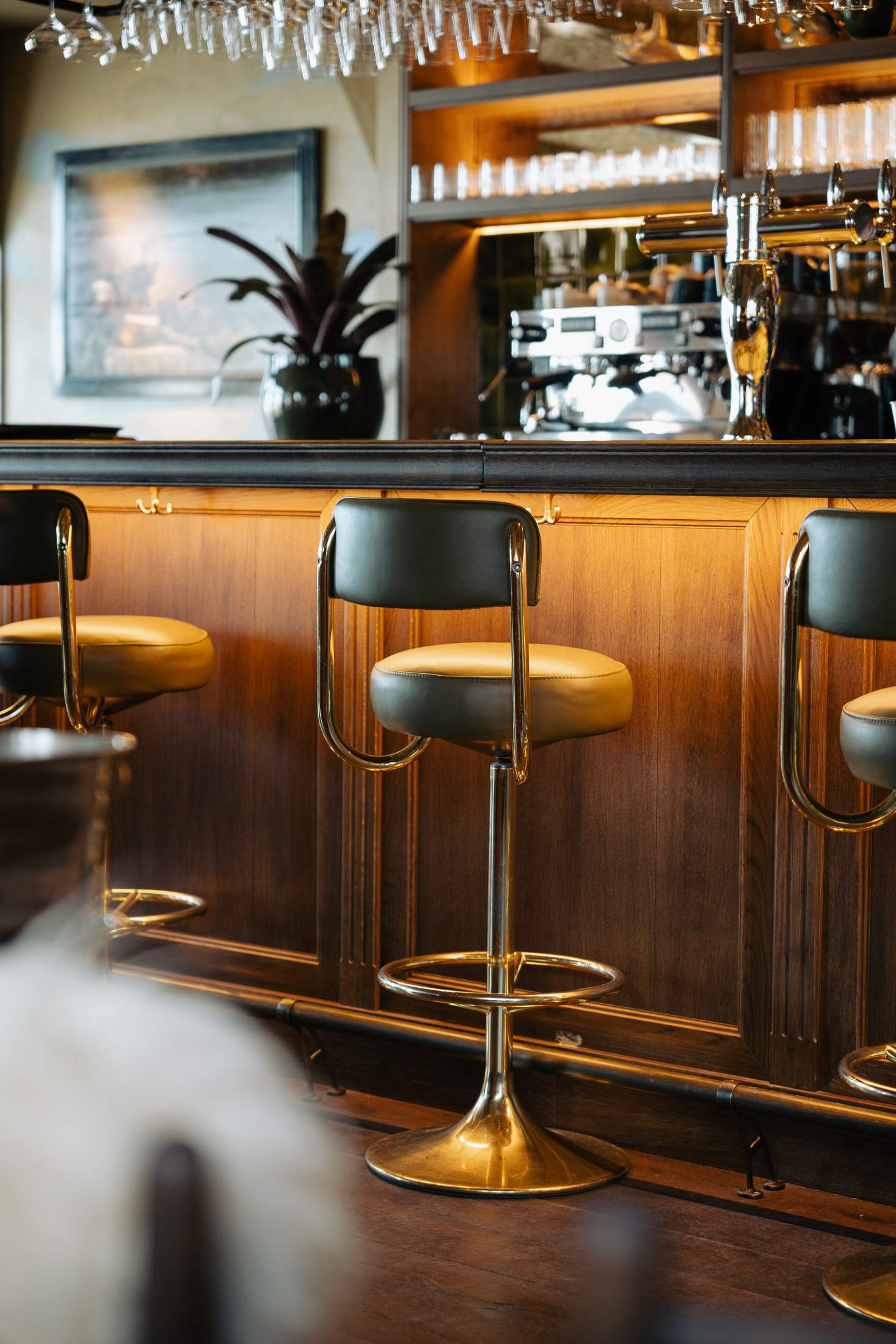
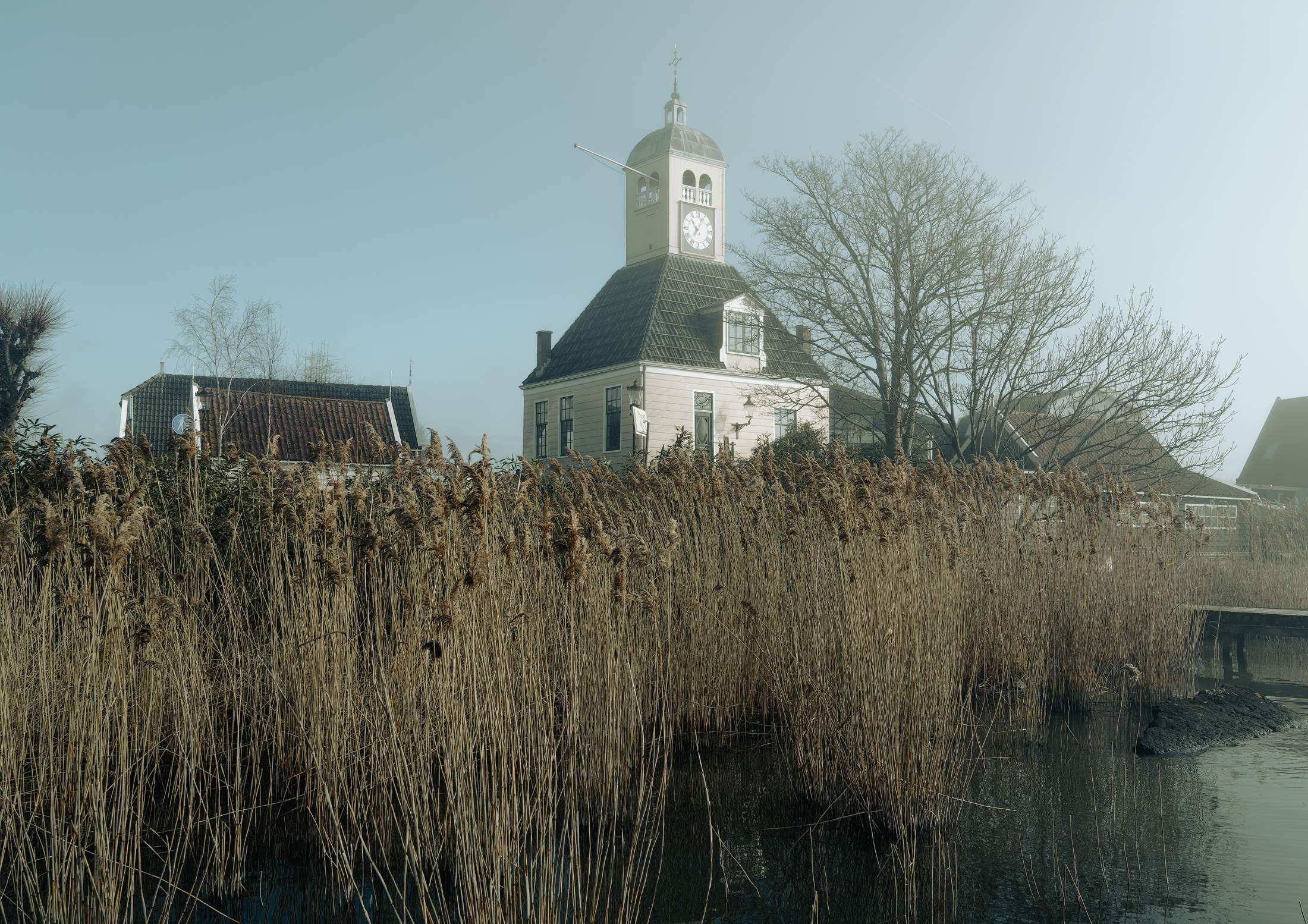
The wood-clad, whitewashed inn on the shores of the Ijmeer is now helping to bring new life to the small, single-road village of De Durgerdam. If you’ve never heard of it, take note. We’re just 7km northeast of Amsterdam but the view through its windows feels a world away from the bustle of the Dutch capital.
Amsterdam-based Aedes is the canny investor and hospitality company that saw the potential of this site, nestled on a road lined with pampas grass, opposite a wooden jetty jutting into the vast lake beyond. Its owner, Paul Geertman, started bringing historic buildings back to life in 1995, before branching into hospitality. The ambitious, three-year renovation of this hotel was his vision. “De Durgerdam is the first project that we developed, own and operate,” he says. “In that respect, it’s very special for us.” The son of archaeologists, Geertman trained as an architect. Though he pursued neither career, his sensitivity to form and history is everywhere in this hotel.
For the interiors, Aedes tapped Design Academy Eindhoven graduates Brecht Duijf and Lenneke Langenhuijsen, co-founders of Buro Belén. De Durgerdam is their first interiors project but you wouldn’t know it to see it. Belén began with the idea of honouring the building’s past, an approach that enriches the hotel’s 42-cover restaurant, its four rooms in the main building and the newly built guesthouse at the back, in which there are a further 10 guestrooms. There’s also a snug fireside space with a curtain for extra privacy, a downstairs reading nook for guests and a communal table at the front of the restaurant.
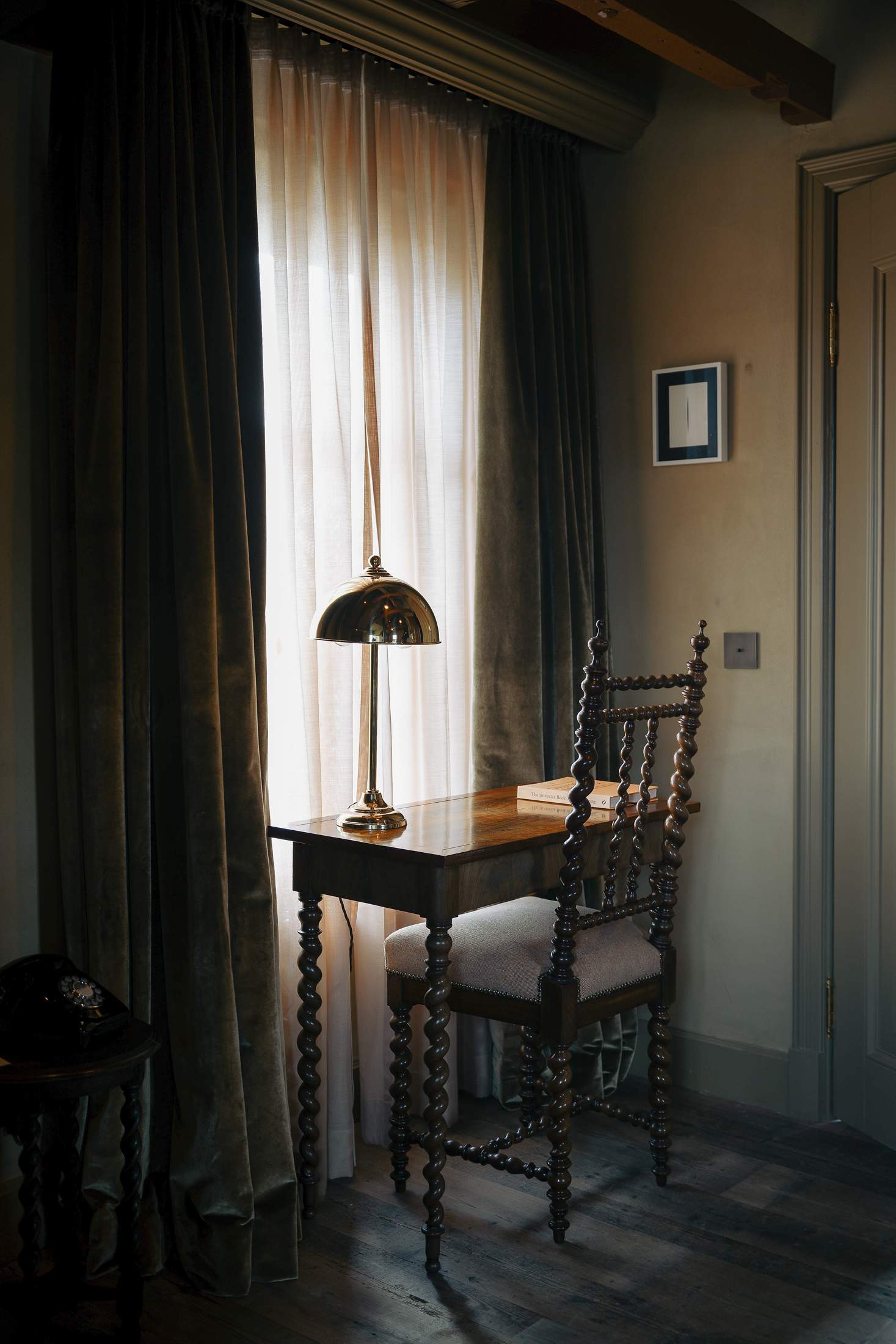
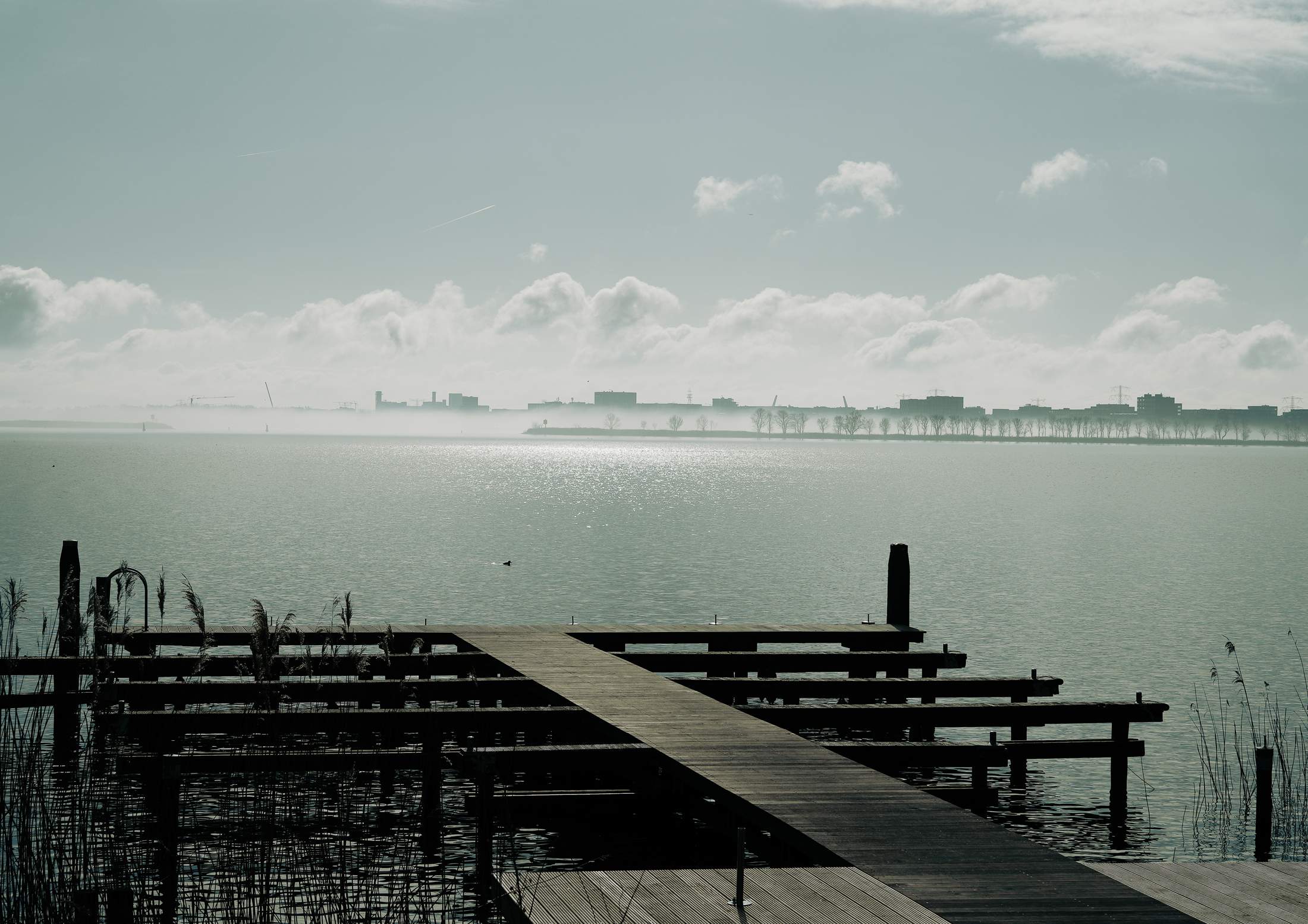
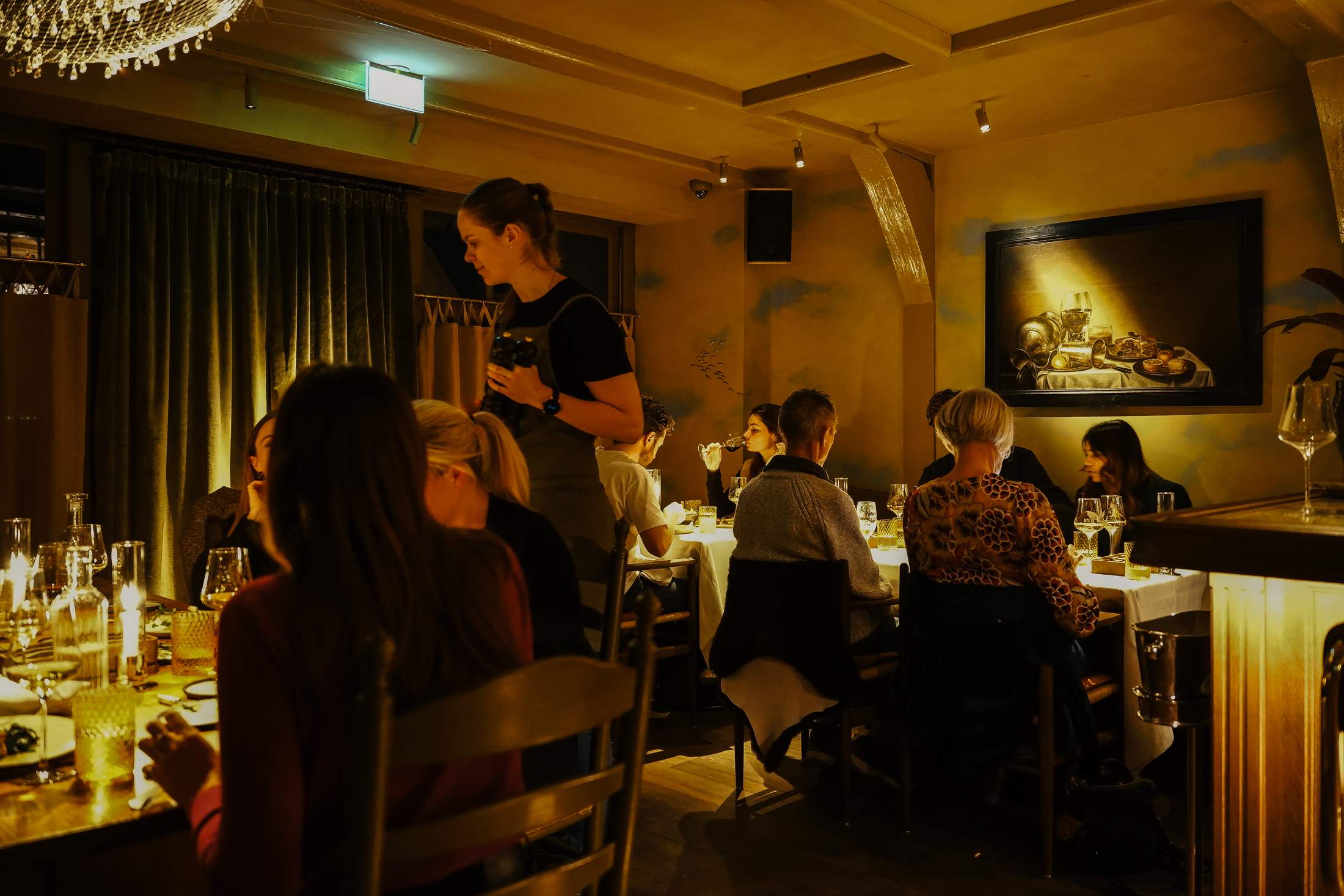
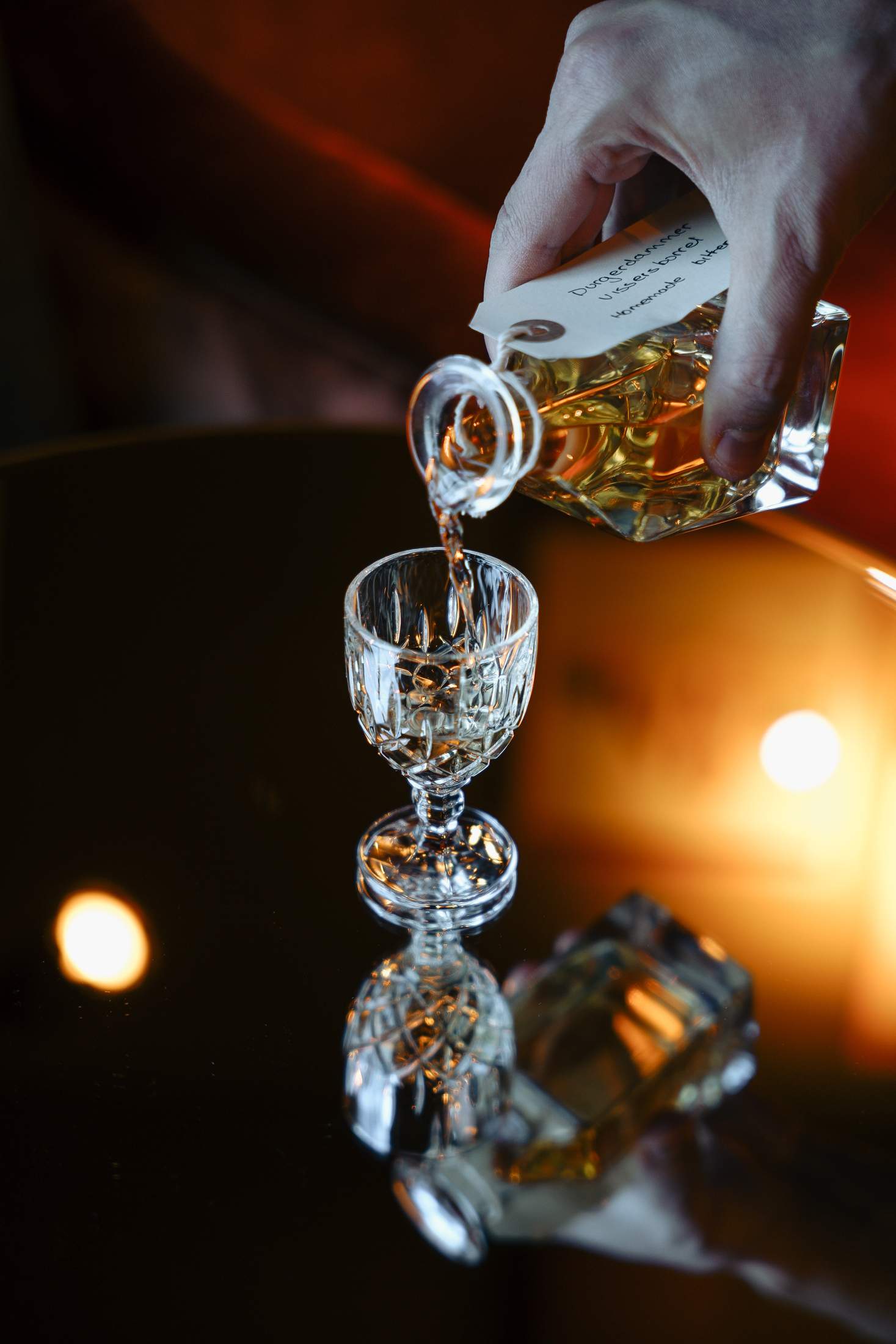
The four rooms in the main building are all different but each is accessed by a deeply recessed, age-worn spiral staircase. The palette throughout is a mix of brick-red and ochre, and you’ll spot custom-fired bathroom and accent tiles from Royal Tichelaar Makkum, a firm founded in 1572.
Monocle’s favourite suite is in the eaves of the original pitched roof and includes a wood-burning stove, a window seat, a barley twist chair and a desk with views of the village and bobbing boats beyond. Every room has a comfy reading chair and in this one there’s also a writing desk from which to gaze out at the boxy outline of the city of Almere, Enneüs Heerma Bridge and islands across the water.
Though the rooms in the main building vary in size, they all include custom throws that glisten like pools of mercury, art from Geertman’s collection and voluptuously curved tulip-wood headboards. There are some homely touches too: for example, the inside of every cupboard is painted sky blue in a nod to the village custom of doing so to ward off insects (the blue paint once used for this purpose contained an ingredient that bugged the bugs).
It’s this delicate sense of place that helps the revamp feel faithful to the past. The effect is one of total gezelligheid – an unhelpfully untranslatable sense of cosiness and warmth that’s uniquely Dutch. This is aided by the common sense informing the interior decisions: windows that open, TVs that fold away and comfortable spaces where you can read or jump on the bed as you please.
De Mark restaurant is headed up by Richard van Oostenbrugge and Thomas Groot. Though the pair know haute cuisine well from founding Amsterdam’s lauded restaurant 212, which has two Michelin stars, the food here is more befitting of the inn’s neighbourhood feel. It’s a place to enjoy good cooking masquerading as comfort food served by candlelight: think beefier-than-meat tomato tartare, risotto with gooey gouda and morels, then sole meunière with spinach and seaweed, or veal cheeks with Opperdoezer Ronde potatoes.
The Dutch cheeses to finish show the place’s commitment to provenance but the chips and French mayonnaise on the menu hint that it’s OK to come here to have a pint and bite at the bar if you’d prefer. On Monocle’s visit, it was a neighbour rather than a tourist at the next table. Back at the breakfast table, the waitress has cleared the broken glass and the sun peeks through the clouds, its light glinting on the lake outside. Church bells and the honking of geese outside are just about audible. Whether or not breaking glass brings good luck, one thing is clear: De Durgerdam doesn’t need it.
dedurgerdam.com


